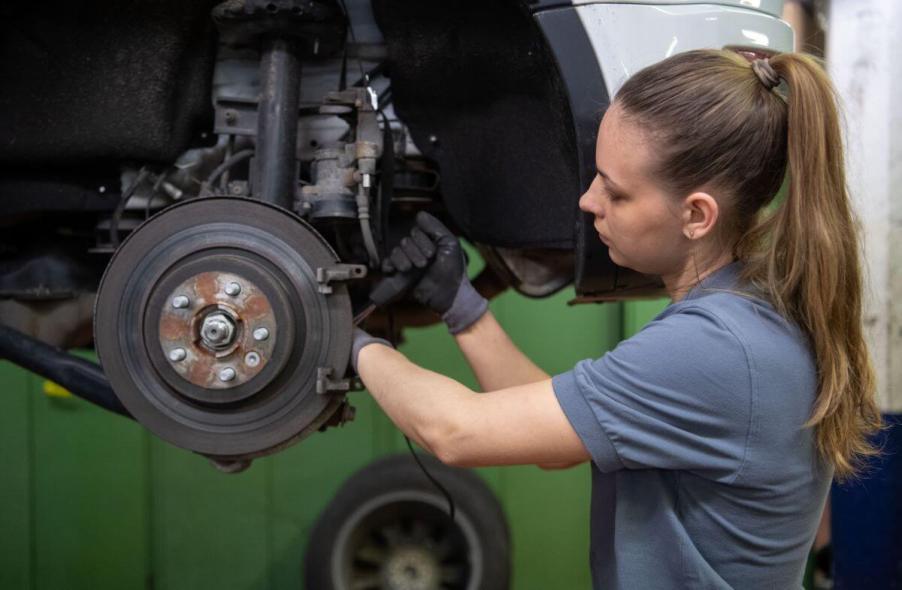
6 Ways to Extend the Life of Your Vehicle’s Braking System
Your brakes are one of your car’s most critical systems for keeping you and your passengers safe while driving. Of course, ensuring that your braking system performs at peak potential requires regular maintenance, but employing these simple driving techniques could also extend the life of your vehicle’s braking system. Let’s explore six ways to extend the life of your car’s brake system components.
1. Drive friendly
In our fast-paced society, it’s often difficult to slow down, but taking an extra few minutes while driving will reduce not only the stress on your car but also your own stress. Stop-and-go traffic is hard enough on your car’s brakes without adding frequent emergency stops. Heart Certified Auto Care says that adapting your driving habits can significantly reduce the odds of brake failure.
2. Limit high-speed travel
We’re not suggesting driving below the posted speed limit, but when stopping at high speeds, your brake pads exert tremendous pressure on the brake rotors. MotorTrend says the friction between those two components slows the wheel’s rotation and the car, generating a lot of heat. That heat transfers to other components, like brake calipers and wheel bearings, that contain rubber seals susceptible to heat-related damage.
3. Reduce speed by coasting
Ride Time suggests that whenever you anticipate the need to slow down, and traffic allows it, try coasting instead of riding your brakes. For instance, if you’re exiting a highway using a long exit ramp, instead of maintaining highway speed until the end, try coasting as you leave the expressway for a bit. However, avoid coasting too long if it creates the need to slam on your brakes at the end.
4. Take advantage of engine braking
Engine braking goes along with coasting. Vehicles equipped with manual transmissions and some commercial trucks make the best use of engine braking by shifting to lower gears. However, even automatic transmission-equipped cars slow down when releasing the accelerator. Using engine braking to reduce your speed instead of your brakes whenever possible will extend brake life.
5. Empty vehicle of excess cargo
Automotive engineers design a vehicle’s braking system to operate under normal conditions. Adding heavy cargo, either as payload or when trailering, increases the vehicle’s gross weight and puts extra strain on your brake system. While carrying a load within the vehicle’s limits is acceptable, consistently hauling heavy payloads increases brake component wear and tear. Additionally, exceeding your vehicle’s cargo or towing limits is dangerous.
6. Keep up with routine brake system maintenance
Routine brake system maintenance is a critical step toward extending the life of your vehicle’s braking system. Jurid recommends periodically changing your car’s brake fluid. Furthermore, Driver’s Edge points out that frequent braking system inspections can prevent faulty brake calipers and rotors from reducing system component service life.
Take these simple steps toward extending brake life and improving performance. Your car will benefit from adjusting your driving habits, reducing cargo weight, and performing routine maintenance and inspections.




